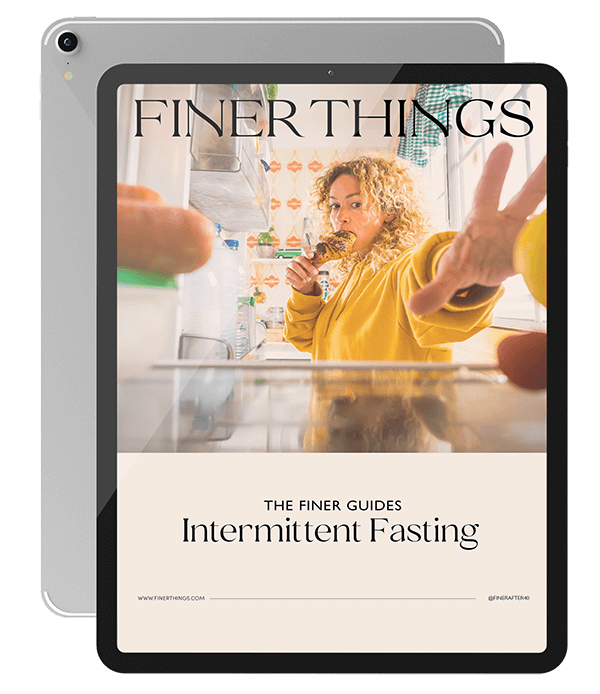Why You Need a Will, According to a Lawyer

By Paula Bennett
Thinking about your will might be uncomfortable (or simply a hassle) but it’s important.
This is probably a topic you don’t want to deal with. Possibly, it is something you have put off for a long time. Are your parents refusing to make their wills? Some people go to great lengths to avoid discussing their estate plans. Others believe that if they make a will, they will die shortly after that.
A shocking statistic, more than 60% of all US adults don’t have a will. Too many people don’t have a will. Don’t be one of them. Here’s why you need a will.
Is a will necessary?
If you are married, have assets (cash, property), or have children, you do not want to die intestate. That is, having died with a will made. You want to have a last will and testament. That’s it in a nutshell.
You have probably worked hard in your life, saved money, and bought a home. You want to make sure your wishes are followed with how those assets are distributed upon your death.
If you die unexpectedly, and you have minor children, you should decide who will be their guardian, not a judge you have never met.
A will designates who is in charge of decisions in several areas
→ Execution of your will or trust (in the event of your death)
→ Healthcare decisions (in the event you are ill or incapacitated)
With a will, you choose the people involved in these key decisions. Also, you want to execute a durable power of attorney over your healthcare and your financial affairs should you become ill, incapacitated, or unable for whatever reason to be in charge of your affairs. It also makes things a lot easier for your children, family members, and loved ones in a difficult time.
What if I don’t have a will?
In most states, the state laws provide that your estate will avoid probate court if you have a will. Probate is the legal process overseen by a local probate judge who will decide the distribution of your property. The probate laws are different in each state.
Simply put, here’s why you need a will.
If you do not have a will, in most states, the probate process is required. This means that a judge will appoint an executor, a guardian for your minor children, determine the value of assets and pay off debts of the estate. The probate judge will then decide which of your heirs is entitled to the remaining assets.
Consider these prompts:
→ Do you want all your money to go to lawyers, law firms, and accountants?
→ Do you want your family to be fighting endlessly in court?
Many celebrities failed to have a will. Aretha Franklin, Prince, Sonny Bono, Michael Jackson, Amy Winehouse – many of these families have been in court for years. Avoiding this is a key reason why you need a will.
Do I need a will if my spouse has one?
If you are married, your spouse should have a separate will.
Consider a revocable living trust.
In many states, legal professionals will also recommend that you set up a trust for your heirs along with your will. A trust is a legal document that allows you to pass assets to your heirs and avoid probate. You will name a trustee to manage the assets and distribute the property according to your wishes. Trusts may also provide savings on any estate taxes you may owe.

How do I choose an executor or trustee of my estate?
An executor of your estate is the person with the authority to carry out your wishes. They will make sure that all financial matters are handled correctly, such as selling a home, paying off credit cards and other debts, and protecting the money you set aside for your children’s college education.
Important tip: choose somebody younger than you are who is trustworthy and financially savvy.
Your executor must be someone who can oversee the management of bank accounts, make investments, knows how to review legal documents and life insurance policies, understands real estate and retirement accounts. Although many people choose lawyers and accountants, that may not be necessary because your executor can hire the right professionals.
Important tip: make sure your executor wants to act in that capacity and review your wishes with them.
Get The Finer Life
Our Sunday email has tips and content you will love – exclusively for our subscribers.
"*" indicates required fields
What is a durable power of attorney?
A durable power of attorney is a legal document that allows the person who holds a power of attorney to act for you should you be incapacitated due to illness or injury.
You want peace of mind, so do not wait to have your attorney draft this important legal document. That person will have the right to make decisions relating to financial and legal matters.
If you run a business and you are in a car accident or are hospitalized for a lengthy time, the person holding your power of attorney will have the ability to run your business in your absence. As with choosing an executor or trustee, choose someone trustworthy, intelligent, and financially savvy.
What’s different about a healthcare power of attorney?
A health care power of attorney gives the person that holds the authority to make decisions about your medical care. In this document, you can choose in advance what types of care you want. Many states make these documents available online. Please be advised that if you or a loved one is hospitalized, almost every health care professional will ask for a copy of this document.

Critical Documents to Have
While you’re tackling why you need a will, don’t stop there. Compile all the key documents you need related to your will. Critical documents include a will, a trust, a list of assets including all financial institutions with login credentials and account numbers, power of attorney, durable power of attorney for healthcare.
Also include a list of real estate, savings accounts, investments, 401(k)s, IRA and pension accounts, life insurance policies, cars, and any other valuable personal property.
Keep copies of your existing well, trusts divorce decrees, prenuptial agreements, and any other legal documents that might affect distributions of your state.
Review everything every few years or when you have significant life changes.
Why should I update?
Here’s an example to understand the importance of an updated will. Jim and Jennifer owned a waterfront home in Malibu. Jim made a will in which he left everything to Jennifer. The couple got divorced. Ten years later, Jim died, but he had forgotten to update his will in which he had left everything to Jennifer. Even though she had been divorced from him for ten years, she inherited all his assets, including the Malibu house.
If you go through a significant change in your life, update your documents.
Even with no significant changes, it is best to review every five years and more as you get older.
Do I need a lawyer, or can I do it myself?
This depends on your personal finance situation. If you have a net worth, it is best to hire a certified estate planning attorney. Creating complicated legal documents yourself is not recommended. It is too easy to make an error. Tax laws are changing every day. Don’t be penny wise and pound foolish.
How do I choose an attorney?
It is essential to choose an attorney whose practice is devoted to estate planning, and in fact, many lawyers are “certified estate planning” specialists. Most of the legal malpractice occurs in the estate planning area.
→ Ask your banker, lawyer, accountant, or insurance advisor to make a
recommendation.
→ Research those recommendations on Google and social media.
→ Look at their websites (or LinkedIn), see where they went to law school,
whether they’ve written articles about estate planning, what professional
organizations they belong to.
Most lawyers charge similar fees, so why not hire the top estate planning lawyer in your area?
Disclaimer
The information provided on this website does not, and is not intended to, constitute legal advice. All information, content, and materials available on this site are for general informational purposes only. Readers should contact their attorney to obtain advice concerning any particular legal matter. The views expressed on this site are those of the individual authors writing in their capacities only.

Want a Free Guide?
You will receive our free 19-page guide and access to our exclusive content, private invitations, and tips you’ll love.
"*" indicates required fields
Facebook Group
